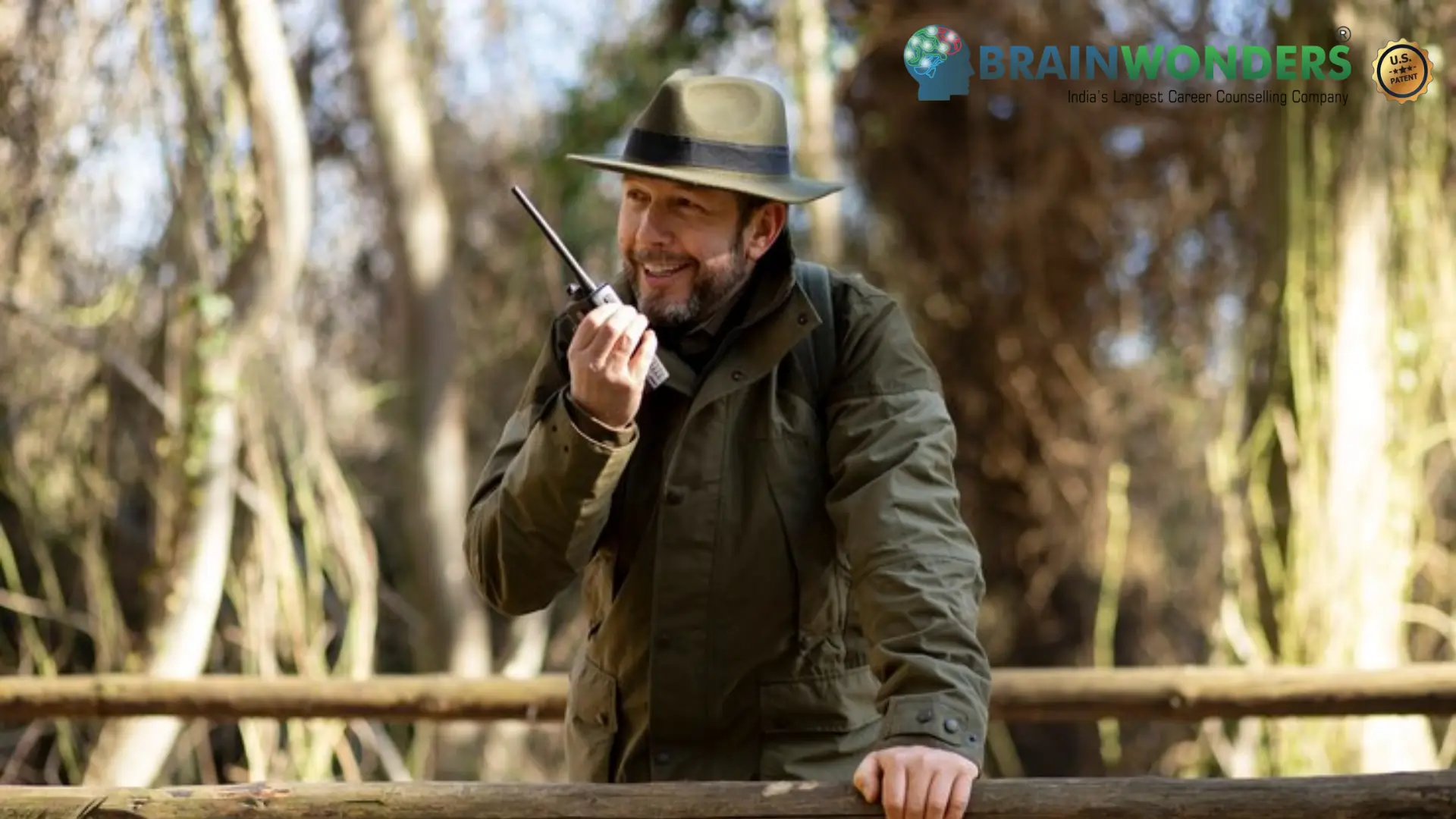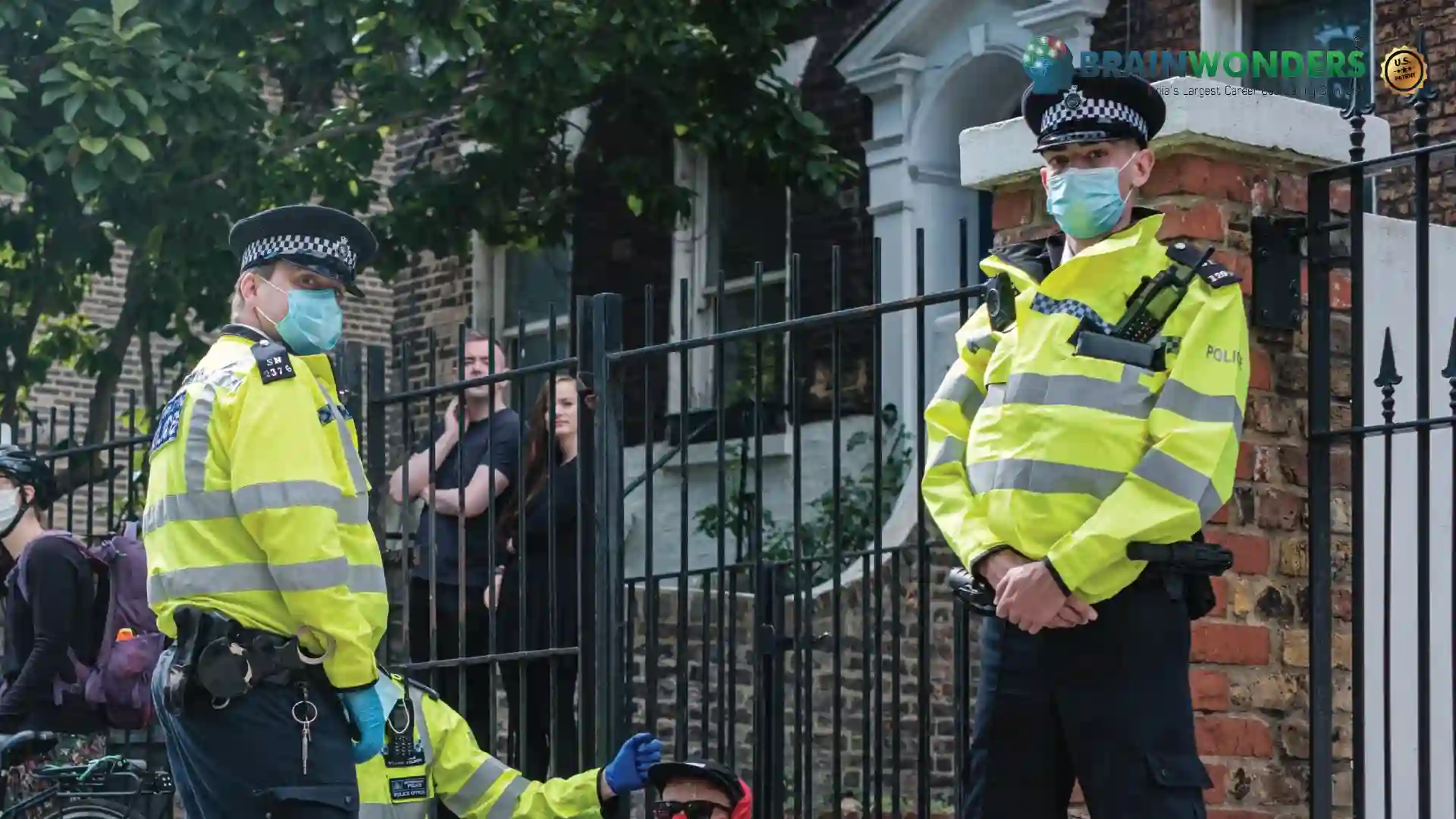How to become a Fish and Game Warden
Overview, Courses, Exam, Colleges, Pathways, Salary

Overview
Who is Fish and Game Warden ?
A Fish and Game Warden, also known as a Conservation Officer or Wildlife Officer, is a law enforcement professional responsible for enforcing fish and wildlife conservation laws and regulations. Their primary duty is to protect and preserve natural resources, wildlife habitats, and enforce hunting, fishing, and boating regulations. Fish and Game Wardens patrol assigned areas, monitor wildlife populations, investigate illegal activities such as poaching or environmental violations, and ensure compliance with fishing and hunting seasons and bag limits. They may also provide education and outreach programs to the public, participate in search and rescue operations, and collaborate with other law enforcement agencies and wildlife organizations. Fish and Game Wardens play a crucial role in maintaining ecological balance, conserving wildlife, and ensuring the sustainable use of natural resources.
Typical day at work
What does Fish and Game Warden do?
- Law Enforcement: Fish and Game Wardens enforce laws and regulations about hunting, fishing, trapping, and boating activities. They patrol designated areas, conduct inspections, and investigate reports of violations.
- Wildlife Protection: They protect wildlife and their habitats by monitoring and managing populations, ensuring compliance with hunting and fishing seasons, bag limits, and other regulations that promote conservation and sustainable use of natural resources.
- Environmental Enforcement: Fish and Game Wardens investigate environmental violations such as illegal dumping, pollution, and habitat destruction, taking appropriate actions to preserve ecosystems and natural resources.
- Public Education and Outreach: They provide education and outreach programs, raising awareness about wildlife conservation, responsible hunting and fishing practices, and preserving natural habitats.
- Search and Rescue Operations: Fish and Game Wardens participate in search and rescue operations for lost or injured individuals in wilderness areas, using their knowledge of the local terrain and wildlife behaviour to aid these efforts.
- Collaboration: They work closely with other law enforcement agencies, wildlife organisations, and government bodies to coordinate efforts and ensure effective conservation and enforcement measures.
- Report Writing and Documentation: Fish and Game Wardens maintain accurate records, prepare reports on violations, investigations, and patrol activities, and may testify in court as needed.
Abilities and Aptitude needed
What are the skills, abilities & aptitude needed to become Fish and Game Warden?
- Knowledge of Wildlife and Conservation: Fish and Game Wardens need a strong understanding of wildlife species, habitats, and conservation principles. Knowledge of local ecosystems, animal behaviour, and environmental issues is crucial.
- Law Enforcement Skills: They should possess law enforcement skills, including knowledge of criminal justice procedures, evidence collection, investigation techniques, and the ability to enforce wildlife and conservation laws effectively.
- Physical Fitness and Outdoor Skills: Fish and Game Wardens often work in remote areas and rugged terrains. Physical fitness, outdoor survival skills, navigation abilities, and handling of outdoor equipment are necessary.
- Communication and Interpersonal Skills: They must have excellent communication and interpersonal skills to interact with the public, educate and inform individuals about wildlife conservation, and effectively handle confrontational situations.
- Decision-making and Problem-solving: Fish and Game Wardens should be able to make sound decisions quickly and effectively, assess situations, and respond appropriately to various challenges, including illegal activities and emergencies.
- Ethics and Integrity: They must possess high ethical standards, integrity, and a commitment to upholding wildlife conservation laws. They should demonstrate honesty, fairness, and professionalism in their interactions with the public and fellow law enforcement personnel.
- Physical and Emotional Resilience: Fish and Game Wardens encounter challenging situations, including working in adverse weather conditions, dealing with dangerous wildlife, and witnessing illegal activities. They need resilience to cope with the physical and emotional demands of the job.
- Teamwork and Collaboration: Fish and Game Wardens often collaborate with other law enforcement agencies, wildlife organisations, and government entities. Strong teamwork, collaboration, and building effective partnerships are essential.
- Communication Technology Skills: Proficiency in using communication technologies such as radios, GPS systems, and computer applications is essential for effective communication and reporting.
- Lifelong Learning: Fish and Game Wardens should be committed to continuous learning, and staying updated with wildlife conservation laws, regulations, and emerging techniques in wildlife management and enforcement.
Pathways
How to become an Fish and Game Warden?
Entrance Exam
Entrance Exam for Fish and Game Warden ?
Courses
Which course I can pursue?
Best Colleges
Which are the best colleges to attend to become an Fish and Game Warden?
Industries
Which Industries are open for Fish and Game Warden?
- Government Agencies: Fish and Game Wardens are often employed by government agencies responsible for wildlife management and conservation, such as environmental departments, wildlife services, or natural resource agencies.
- National Parks and Wildlife Refuges: Fish and Game Wardens may work in national parks, wildlife refuges, or protected areas, ensuring compliance with regulations, conducting patrols, and protecting wildlife and habitats.
- State and Provincial Agencies: State or provincial wildlife departments and fish and game commissions hire Fish and Game Wardens to enforce hunting and fishing regulations, manage wildlife populations, and protect natural resources.
- Conservation Organisations: Some conservation organisations employ Fish and Game Wardens to monitor wildlife populations, assist with research projects, and enforce conservation laws on their properties or collaborate with government agencies.
- Private Land Management: Fish and Game Wardens may find opportunities in private land management companies or hunting estates that require enforcement of hunting and conservation regulations on their properties.
- Environmental Consulting Firms: Environmental consulting firms may employ Fish and Game Wardens to provide expertise in wildlife conservation, assist with environmental impact assessments, and ensure compliance with wildlife protection regulations.
- Educational Institutions: Some universities, colleges, or research institutions may employ Fish and Game Wardens for research projects, wildlife monitoring, or to provide educational programs on wildlife conservation.
- Non-profit Wildlife Rehabilitation Centres: Fish and Game Wardens may work with wildlife rehabilitation centres, assisting with the rescue, rehabilitation, and release of injured or orphaned wildlife.
internship
Are there internships available for Fish and Game Warden?
Internships are available for individuals interested in pursuing a Fish and Game Warden or Conservation Officer career. These internships provide valuable hands-on experience and an opportunity to learn about wildlife conservation and enforcement practices. Government agencies, wildlife organizations, and conservation-focused institutions typically offer internships in this field.
During a Fish and Game Warden internship, individuals may have the chance to participate in various activities, such as wildlife monitoring, habitat restoration, public education programs, and enforcement support, under the guidance of experienced professionals. Interns may also assist with research projects, data collection, and administrative tasks related to wildlife management and conservation efforts.
The duration and requirements of Fish and Game Warden internships can vary. Some internships may be seasonal, while others may be full-time or part-time. It is advisable to check with specific government agencies, wildlife organizations, or conservation institutions for internship opportunities, application processes, and eligibility criteria.
Participating in a Fish and Game Warden internship can provide valuable exposure to the field, practical skills development, networking opportunities, and a deeper understanding of wildlife conservation and enforcement. It can be a stepping stone towards a rewarding career in protecting and preserving our natural resources.
Career outlook
What does the future look like for Fish and Game Warden?
The future for Fish and Game Wardens is promising, with a growing emphasis on wildlife conservation and environmental protection. As public awareness and concern for the natural world increase, the demand for their expertise will rise. Fish and Game Wardens will continue to play a vital role in enforcing regulations, preserving habitats, managing wildlife populations, and educating the public. They will contribute to sustainable practices and the long-term preservation of our natural resources for future generations.


.webp)

